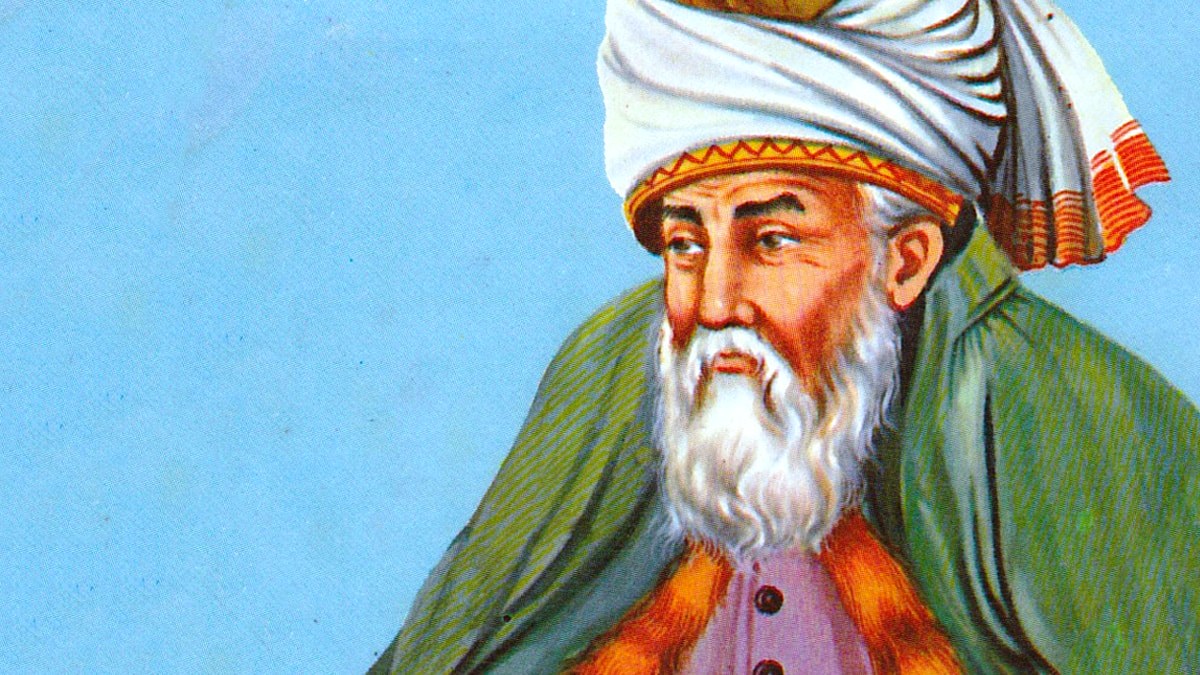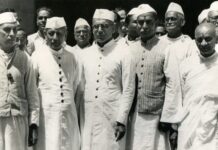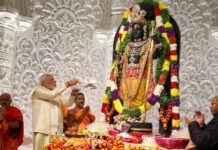While demolishing stake-holding claims of many Kashmiris, former RAW chief A S Dulat has triggered a new challenge for his successors in India’s intelligence set up with his disclosures in Kashmir: The Vajpayee Years. But for students of contemporary history, the narrative is getting strongly real, writes R S Gull
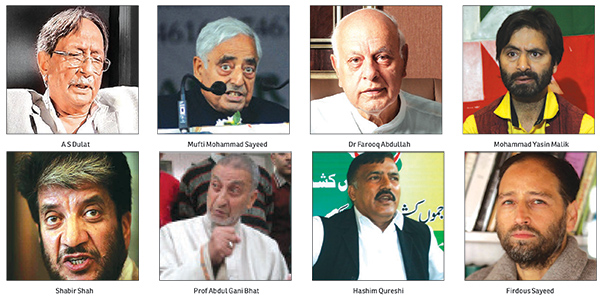 It might have been half a decade now when, during a friend’s conjugal dispute resolution, gentleman relative of the woman barked: “…he does not know. I can just send four trucks of army to his home and then I will see what he can do?”
It might have been half a decade now when, during a friend’s conjugal dispute resolution, gentleman relative of the woman barked: “…he does not know. I can just send four trucks of army to his home and then I will see what he can do?”
The gentleman did not send the troops. The couple separated, remarried and fathered a son. But for all these years, the question lurking on my mind was why this well-behaving young man with good overseas exposure threatened to use army, when police was already involved. There were no indications of his garrison links. Thanks to Amarjit Singh Dulat, I now know the threat was real. In London, the gentleman’s family was playing host to Delhi’s spooks and the relationship was promising.
Dulat, a long time IB man who managed Kashmir for Delhi and then took over R&AW, India’s external intelligence gatherer, has detailed many off shore interventions linking the diaspora to the crisis he was handling. While doing so he has unmasked many a “heroes” who are still milking Kashmir tragedy and making their fortunes in the West. Some of them, as the book suggests, were so desperate to keep their wives abroad and fly by first flight to rule Kashmir, if an opportunity emerges.
The Harper Collins book that exhausted its available stock in the few hours in Srinagar last week is not an ordinary work. A key sleuth, who handled sensitive Kashmir for the country and made his career, gets his analysis to the people. To tell the story, he ropes in a respected journalist Aditya Sinha, Dr Farooq Abdullah’s biographer.
Dulat has retained his discretion as an author. The entire work has a tone favourable to his friend Dr Farooq Abdullah. The author has reiterated repeatedly his inability to divulge many details for obvious security reasons. A law also prevents him from doing so. He has chosen his subjects very cleverly so that he dispenses with just a fraction of things he knows. There are instances which can be challenged and many things that merit a debate. Despite all this, the work is a massive operation theatre where he has butchered his subjects.
National Conference leader Dr Farooq is seemingly projected as more serious a politician that he actually is. It might help the aging patriarch to have his status elevated beyond Pir Panchal but Dulat has decimated him for his constituency. Accusing Delhi of wasting the man, the author credits Dr Abdullah for rediscovering Hashim Qureshi for Kashmir, introducing Kukka Parray to the Rashtriya Rifles and projecting his resolution for autonomy in 2001 as a non-serious effort. He has referred to his alleged womanizing, his drinking during the month of fasting, his theatrics and offered instance explaining why he has remained so keen to stay on the right side of Delhi government.
One sees the pain that author felt over the betrayal of Dr Abdullah at the hands of Vajpayee government, when he reneged from his promise of making him India’s Vice President. Dulat may require revisiting the episode because he has not been able to explain the last ditch reversal in NDA thought process. People who know it think that episode can fetch a bigger and better book!
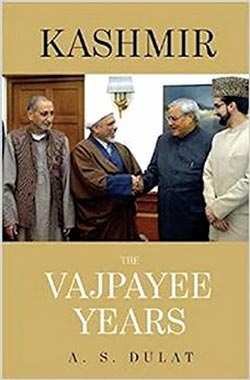 Given Dulat’s closeness with Farooq, PDP camp was perturbed as TV started flashing the book. But nothing much is there against PDP. Mufti Sayeed is held directly responsible for appointing Jagmohan as the governor in 1990 that led to Abdullah’s resignation and Dulat’s departure to Delhi, the author has tried to undo the two accusations that were talked about for PDP emergence. That it was floated with active help from Geelani and that it was Delhi sponsored. Dulat says PDP was born basically out of Mufti’s lifelong ambition to become CM which he wrongly believed could not be achieved in the Congress.
Given Dulat’s closeness with Farooq, PDP camp was perturbed as TV started flashing the book. But nothing much is there against PDP. Mufti Sayeed is held directly responsible for appointing Jagmohan as the governor in 1990 that led to Abdullah’s resignation and Dulat’s departure to Delhi, the author has tried to undo the two accusations that were talked about for PDP emergence. That it was floated with active help from Geelani and that it was Delhi sponsored. Dulat says PDP was born basically out of Mufti’s lifelong ambition to become CM which he wrongly believed could not be achieved in the Congress.
Dulat has detailed the events in which BJP tried its level best to prevent Mufti from becoming the Chief Minister in 2002. As Sonia Gandhi disagreed, the rightwing party was later convinced that Mufti was the best bet to rule the sensitive state because of the policies he adopted. However, Dulat says, there are a lot of misgivings about Ms Mehbooba Mufti within the right wing party. But will things change as the two parties are ruling the state in coalition remains to be seen.
The book gives rare information about a meeting between Mufti and Farooq in Delhi, in anticipation of 1996 polls as the author hosted them. At one point of time, Dulat suggested the two to bury the hatchet and become one but Mufti said this will create an opposition vacuum. Author has insisted that Prof Saif ud Din Soz was primarily responsible for creating the gulf between the two, post-1996.
Separatism is the main focus of the book. In revealing that story, Dulat has undone many careers. Prof Abdul Gani Bhat, the top peacenik in the moderate fold of Hurriyat is packaged as “my friend, philosopher and guide”. The persona of Shabir Shah, the man who once symbolized Azaadi is completely compromised as Dulat has detailed how he messaged his ego to inflate. This revelation has come for the first time that P V Narasimaha Rao’s “sky is the limit” statement from Burkina Faso in anticipation of 1996 assembly elections was meant for Shah, who, incidentally failed to pick the message and missed the bus.
Another major detailed chapter deals with Abdul Gani Lone, perhaps the only politician that Huriyat ever had. Dulat explains in detail his refusal to be part of the elections but offers clear details of his keenness to get Kashmir out of the morass.
Author used the erstwhile Janbaz Force commander Firdous Sayed to get into the complex set up of militant-politics nexus to tell the story. Sayed was eventually a lawmaker, courtesy Dulat, a position that Dr Farooq denied the next time.
The sketchy details about getting Abdul Majid Dar, the top Hizb ul Mujahideen man back home, is an impressive addition to the public knowledge. The meticulous planning envisaging Dar’s return with permission from his Pakistani handlers and the organization masters offers just a bit of detail about how difficult such operations could be.
Former R&AW chief does not see JKLF leader Yasin Malik as Che Guevara. Dulat says Malik became a Gandhian after Dr Abdullah visited him in Mehruli sub-jail. Now, he has lost his street power and is “gradually gravitating to his original moorings in the National Conference.” He goes even to suggest that Malik’s marriage is being seen by some as a “CIA operation”!
The book has put the lid on controversy over Hashim Qureshi, the Ganga hijacker of 1971 who is still a Dutch citizen. His “surrender” was actually negotiated by Dulat after Dr Farooq got the two in touch in London. The idea behind his import, apparently, was to fill the political vacuum. With this book ends the controversy about Qureshi’s double dealings.
The book has vindicated the cynics and naysayers in Kashmir that people should avoid trusting their leaders because they convert mass sacrifices into personal fortunes. This theory has kept Kashmir smoldering for decades and could lead to anarchy, one day. Unwittingly, after going through the book, it appears that Syed Ali Geelani is perhaps the rare one who is comparatively unblemished. Interestingly, Dulat says Dr Farooq would be happy without Geelani, unlike Mufti who wants him to be fought politically despite being a Pakistani and a disruptive element.
Separatists have fiercely reacted to the book. They see an objective in a key sleuth making such revelations. In response, the cries for unification are getting shriller.
The revelations have apparently enriched the native narrative. Most of the things that were already in public domain and talked in whispers are finally authenticated by a responsible person. In conflict spots, such revelations take decades to get into public domain.
As the book landed in Srinagar and people started queuing up before the two shops, a joke took off from Pratap Park, city’s Fleet Street – ‘they are grabbing a copy each to check if their name appears in the book’.
This obviously is suggestive of the fact that the book could have consequences. How the intelligence set up will restore its credibility in Kashmir when part of its asset base is publicly talked about is the real issue that will dominate the scene in coming days. Indications suggest that the intelligence community is actually disturbed over the scanty revelations and might be in the process of devising strategy to restore its credibility.




